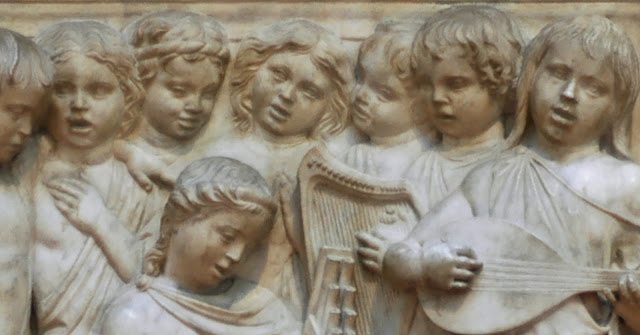As many have said, children,
in their innocence, can often pierce through the layers of illusion that adults
drape over themselves and the world. Unfortunately, that youthful perspective
of the world is often cast aside, labeled naivety and childishness. Nevertheless,
the Roman statesman and historian, Cassius Dio (c. 163-235 CE), wrote that
children might have used their special intuition of the world to unknowingly
predict the future. Dio claimed that the children of ancient Rome predicted the
outcome of the civil war between Octavian (later Augustus) and Marc Antony.
The year was 32 BCE, and
Octavian convinced the Roman Republic to declare war against Egypt and its
queen, Cleopatra, the lover of Marc Antony. As Octavian had planned, Antony
sided his faction with Cleopatra’s forces, an action that could be easily labeled
by Octavian’s propagandists as treason. With civil war inevitable, senators
scrambled to pick a side, making their choice known by staying with Octavian in
Rome, or by fleeing from the great city.
According to Cassius Dio,
even the children living in 32 BCE were inspired by all of the fervor. Pulling
from whatever unknown sources Dio could access, he claimed that great masses of
children from Rome gathered together to fight it out in an elaborate
mock-battle. Half of the youthful mob called themselves Caesarians (on the side
of Octavian) and the other labeled themselves as Antonians. After two days of play
fighting, the children under the Caesarian banner delivered a sound defeat to
the kids who were pretending to be Antonians.
In his great historical and
literary achievement, The Roman History,
Cassius Dio counted this play battle as one of many omens and signs sent by the
gods to announce the upcoming triumph of Octavian over Marc Antony.
Written by C. Keith Hansley.
Top picture attribution: (Marble Sculpture of Children singing and playing
music on a church in Florence, Italy, sculpted by Luca della Robbia (Italian,
1400–1482), [Public Domain] via Creative Commons).
- The Roman History (Book 50, chapter 8) by Cassius Dio, translated by Ian Scott-Kilvert. New York: Penguin Classics, 1987.

No comments:
Post a Comment